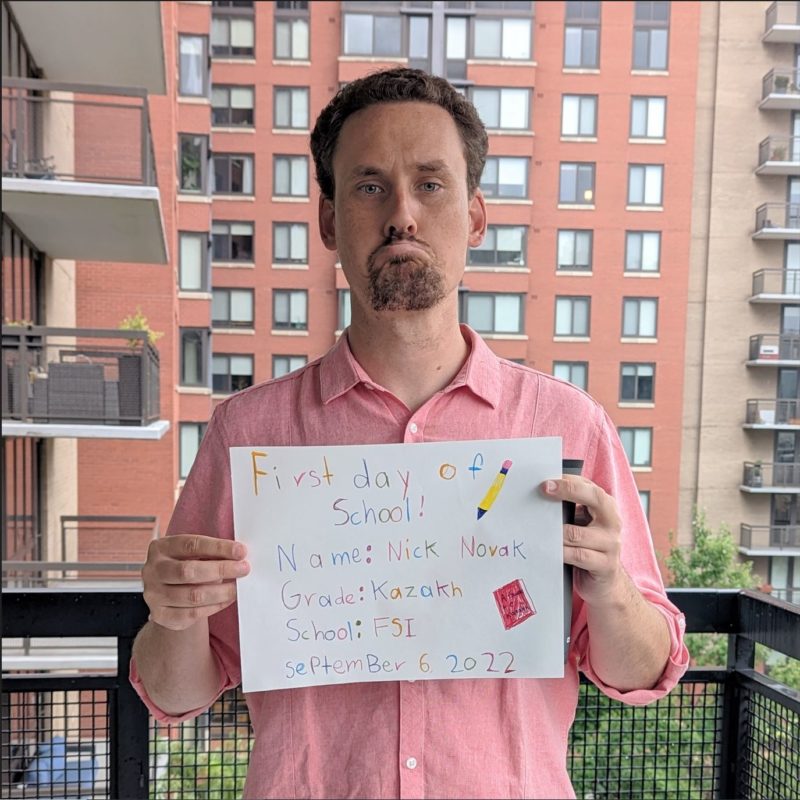Well, look at that. I’m back already. How’s that for keeping my word?! In Tuesday’s post I filled you in about how we spent our summer, so today I’ll tell you what brought us to DC and how Nick will be spending his working hours this next year. But first, we need do a quick primer on State Department lingo and acronyms. Stay with me!
Tour Types
When we’re posted to a country outside the U.S., it’s referred to as an “Overseas Tour”. Accordingly, when we take a domestic assignment, like we did from 2014 to 2016, it’s called a “Domestic Tour/Assignment”. We fall into neither of those categories right now. Instead, we’re in what’s called a TDY, or a Temporary Duty Assignment.
TDY’s are typically a year or less and have the benefit of furnished housing and per diem (extra money to help fund incidental costs incurred from the temp assignment). The downside of TDYs is that you only get to bring a small amount of your things (the majority of our stuff went to a warehouse in Europe), but since, in our case, we’re here a year, we’ve had to rebuy a lot of things that we already have in storage. Long story short, it’s ended up being a lot of work to set up our temporary living quarters.
What is FSI?
During our TDY, Nick won’t be doing his traditional diplomatic work. Instead, he will be paid his normal salary to learn Kazakh for eight hours a day at the 72-acre National Foreign Affairs Training Center (NFATC) campus in Arlington, VA, which houses the main campus of Foreign Service Institute (FSI), the State Department’s Training Division. Each year, over 200,000 enrollees from 50 different government agencies come to NFATC to take classes at FSI!

FSI has been in operation for 75 years and is comprised of six divisions– the School of Language Studies, the School of Professional and Area studies, the School of Applied Information Technology, the Leadership and Management School, the Office of the Historian, and the Transition Center. Most are self-explanatory, but I’ll elaborate on two: the School of Professional and Area studies includes job-specific training (like how to do visa adjudication) and classes that focus on the history, culture and geo-politics of various regions around the world. Prior to starting Kazakh, Nick took a one week overview of Central Asia and he’ll do job-specific training right before we leave for Kazakhstan.
And finally, the Transition Center offers a myriad of classes focused on the logistical and social-emotional aspects of moving and living overseas. These classes are unique in that they are targeted as much at spouses–aka EFMs (Eligible Family Members)–as they are for the employee. They have been invaluable to me over the years and I’ve even been fortunate enough to teach a class about portable careers.

FSI offers an impressive range of 70 languages. It’s pretty much guaranteed that at some point you’ll be sent to DC on TDY for 6 to 12 months to learn a language for an upcoming tour. Such is the case for us right now. Nick will spend his next 12 months preparing for an oral exam that he’ll take next August. It’s required that he pass the test before we can head to Kazakhstan (how’s that for pressure!).
The Test
To pass the language exam, he needs to speak and read Kazakh at a 3/3 level (5/5 is the max, although anything over 4/4 is super uncommon, even for native speakers). 3/3 may appear like a “C” score but in reality, Kazakh is considered a hard language to learn and a 3/3 is a high bar. For comparison, many hard languages allow you to pass at a 2/2 level. All that to say that this is going to be a very challenging endeavor for Nick, meaning he’s gonna have to study his butt off. It doesn’t help that he’s not a big fan of traditional school or studying…

Unfortunately for Nick, being able to speak multiple languages is mandatory for Diplomats. Over the course of a 20 year career, a Diplomat is required to learn a minimum of two languages at a 3/3 (or one at a 4/4) to get into the highest rank (called the Senior Foreign Service, a rank which Nick’s Dad achieved). Some officers come into the Foreign Service already knowing a language and can then test to show their proficiency, enabling them to skip language training (not the case for us). For everyone else, they need to get a 3/3 in a normal language (German, French, Spanish, etc) or a 2/2 in a harder language to get off of language probation. If you don’t get off language probation by your 5th year of employment, you have to resign.
Fun fact: Nick got off of language probation back in 2012 by passing his Spanish exam with a 3/3. He has not done any language classes since then.


